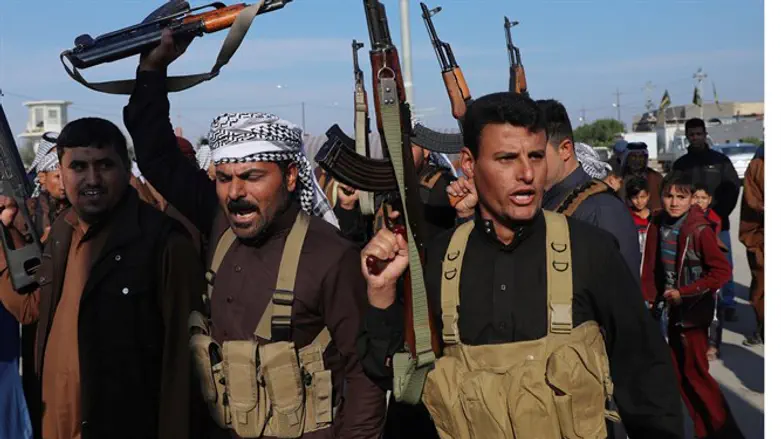
Widespread demonstrations in Iraq (also known as the Tishreen Revolution or Iraqi Intifada) have been taking place for months against governmental corruption and incompetence and gradually escalated into calls to overthrow the Iraqi political system in place since the ouster of Saddam Hussein and end Iranian interference in the country.
When Iranian proxy leaders led an attack on the US Embassy on the last day of 2019, the protests seemed to start taking on an anti-US slant. The slogan "Out, out Iran" was replaced with "No to Iran, no to America." However, according to a Rudaw report on Thursday, many Iraqis are refusing to join demonstrations calling for the expulsion of US forces, understanding that the presence of US forces in the country are necessary for their safety.
“I think 75% of the protesters in Iraq, including me, won’t participate in the demonstration to expel US troops,” Sajad, a 26-year old Iraqi protestor who has been camping out in Baghdad's Tahrir Square since late October, told Rudaw.
“The Iranian-backed militias, such as Kataib Hezbollah, al-Nujaba, and Asaib Ahl al-Haq have to be expelled to Iran before expelling the American troops. “[The] US troops presence in Iraq is very important for our protection,” Sajad added. “If the US troops {are] expelled now, we as protesters will be the biggest losers, as Iranian-backed militias will kill all of us in days.”
Over 511 protestors and security force members have been killed since December and about 17,000 people have been wounded since the beginning of the protests, according to Human Rights Watch.
Iran-backed militia snipers stood on the rooftops of Baghdad when the protests began in October and the Iraqi government has allegedly used bullets, teargas, hot pepper gas and hot water against the protestors. There have also been numerous reports of assassinations of political activists by Iran-backed militia as well as kidnappings and torture.
Influential Shiite cleric Muqtada al-Sadr called on his supporters and protestors to join large protests against US troops on January 24.
"O Soldiers of G-d and the nation, rush to a united and peaceful demonstration of millions, denouncing the American presence and its violations," al-Sadr tweeted.
Omer, 28, a protester from Nasiriya, in southern Iraq's Dhi Qar province, told Rudaw that he also won't participate in demonstrations to expel US troops in Iraq. He added that he fears that there will be clashes in Tahrir Square between Sadr's supporters and protestors like him who refuse to oppose the US presence.